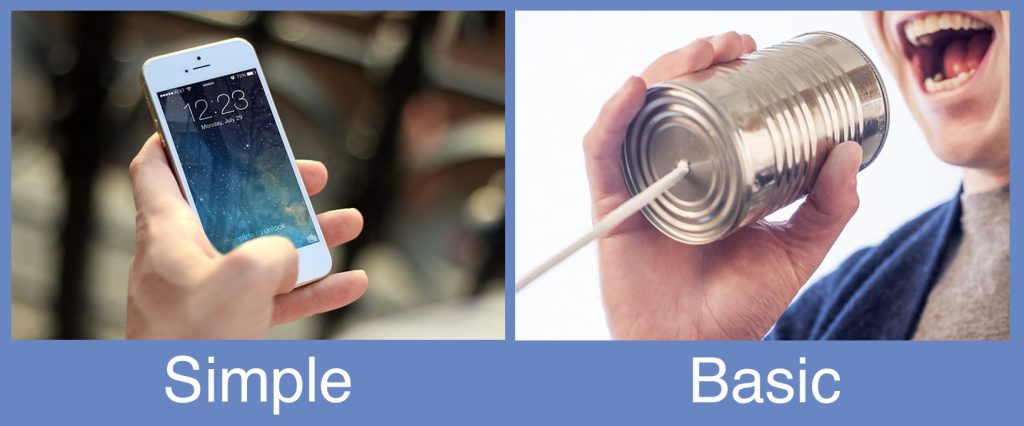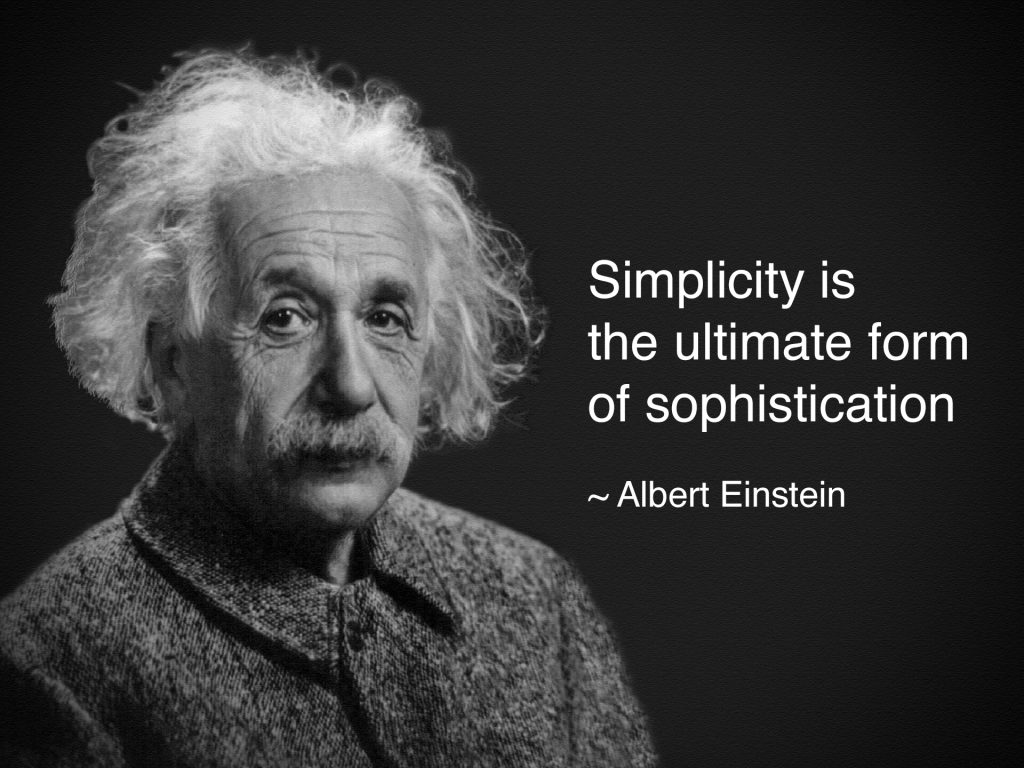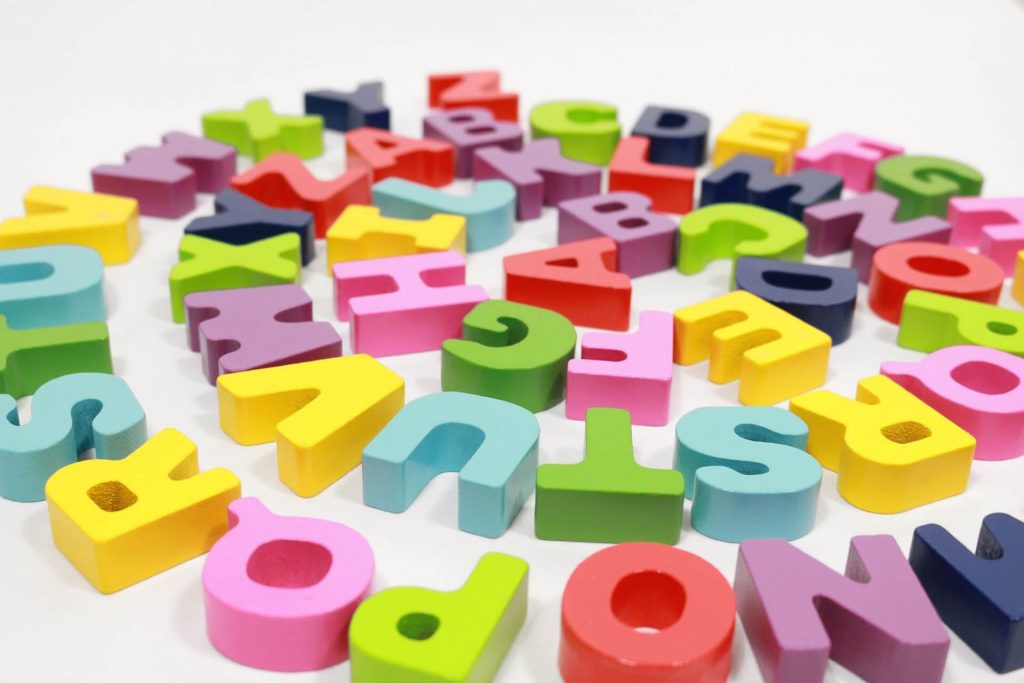UPDATED JUNE 17, 2024
The difference between simple and basic
There’s a common misconception that the terms simple and basic are interchangeable.
But this is untrue. There’s actually a big difference especially when it comes to language, words and general communication.
We’ll look at language in a moment, but let’s start with a more visual example.
Simple vs. basic design

Simple
Smart, sophisticated, refined, intuitive, accessible, progressive, evolved.
The smartphone is what it means to make something simple. An advanced piece of technology that’s accessible, intuitive and easy to use. It’s functional, well-considered and offers a smooth and seamless user experience.
Basic
Crude, rudimentary, raw, undeveloped, unrefined.
The tin can phone is basic. It’s primitive, rough and unrefined. And it kind of works, but in a very limited way.
And that’s the difference.
Simple vs. basic language
Now let’s have a look at how simple and basic apply to language and communication.
Basic language is rudimentary
Basic is the name of a language programmers use to communicate with their computers. And that alone should tell you it’s not fit for human consumption!
It’s the words we give to children when they first learn to read. ‘The cat sat on the mat’ is a prime example.
It’s dulled down — and it’s dull.
You can’t express yourself or write intelligently using basic language.
And you would never use it in your business communications.
Simple language is smart and sophisticated

Writing simply is about being clear, precise, specific and explicit. It’s about saying what you need to say concisely and without unnecessary waffle. And refining your words so they’re easy to read, easy to consume and easy to understand.
And nobody’s ever going to complain because you made something too easy for them to understand!
It’s not about “using words of one syllable” or “dumbing things down”.
It’s about using the correct words. Words that give context and proper meaning. For example, not just ‘bad’, but appalling, inadequate, ineffective, incompetent, harmful or evil.
Writing simply is a skill. Communicating simply is a necessity.
But is it professional?
In the past, I’ve had copywriting clients look at the copy I’ve written and raise an eyebrow. They’ve given feedback, like “it sounds too simplistic” or “it doesn’t sound professional”.
When I asked what they meant, it sounded like they were expecting a liberal peppering of big words, long sentences and jargon.
Yeah, I don’t do that.
I write for your readers — and they value simplicity.
Here are four reasons why.
Four good reasons to use simple language
Simple language:
- Delivers a clear, concise message your audience can read quickly and will only have to read once
- Allows you to break down complex subjects, information and ideas into plain English
- Enables to you to reach your maximum potential, by reaching and engaging more people
- Acknowledges the intellect and sophistication of your audience.
Would you like to simplify your business communications?
Writing simple, refined and accessible copy is a skill not everyone can master.
But it sure helps when communicating with and converting potential customers.
If you think your business communications could benefit from simpler and more accessible language, working with a copywriter who understands the craft is the best way to achieve that.
I’m Jenny Lucas, an experienced copywriter with more than 20 years’ professional writing experience. And I specialise in writing clear, simple copy that converts.
To find out more, visit my main website or get in touch.

You might also like…



